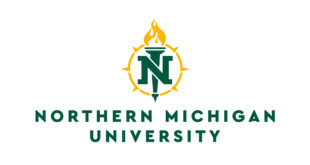The Michigan Department of Environmental Quality and Copperwood Resources have reached a settlement addressing work-related erosion which occurred during spring break-up in April 2017, along Gogebic County Road 519 at Porcupine Mountains Wilderness State Park.
 Representatives from the DEQ and Copperwood Resources – a local subsidiary of Highland Copper managing the mining company’s Copperwood Project – recently signed an administrative consent order, a legal settlement addressing damages without conveying admissions of violations of law, which included a $25,000 fine.
Representatives from the DEQ and Copperwood Resources – a local subsidiary of Highland Copper managing the mining company’s Copperwood Project – recently signed an administrative consent order, a legal settlement addressing damages without conveying admissions of violations of law, which included a $25,000 fine.
Last winter, exploratory drilling was being conducted to test the eastern extension of a mineral deposit first explored in the 1950s. Successful testing could potentially enlarge the mining company’s Copperwood Project beyond its currently-permitted boundaries.
Since March 17, 2017, work had been ongoing within a 466-foot road right-of-way (233 feet on each side of the road) owned by the Gogebic County Road Commission.
Work was halted April 4 after Highland Copper officials were informed of several potential erosion issues on the county property. A contract drilling company was part way into drilling their last scheduled test core hole.
Steve Casey, U.P. district coordinator for the DEQ’s Water Resources Division in Marquette, said the mining company continued test drilling operations during spring snowmelt, in and around wetlands, without first obtaining the necessary wetlands or soil erosion and sediment control permits. The resulting work damaged wetlands and resulted in a discharge of muddied water from the site.
“They made the unfortunate decision to continue drilling during snowmelt last spring, resulting in rutting in wetlands and soil erosion from their drilling site,” Casey said. “Once this mistake became evident, they have been models of cooperation, restoring the relatively minor damage to wetlands and stabilizing the site against further erosion.”
Had the ground been frozen and snow covered during these activities, likely there would have been no erosion or wetland disturbance and no need for wetlands and soil erosion permits, Casey said.
Members of the Upper Peninsula Environmental Coalition’s Mining Action Group – a watchdog group monitoring mining activities in the region – alerted the DEQ and the media to the erosion.
Given the incident, members of the coalition said they have deep concerns about the Copperwood Project.
“Their Copperwood mine project sits on the shore of Lake Superior, and now they are taking steps towards mining under the west end of the Porkies as well, so the stakes are extremely high,” Steve Garske, a UPEC board member said.
Carlos Bertoni, vice-president of exploration at Highland Copper, said the mining company is moving forward, with an assessment of the feasibility of the Copperwood Project anticipated this summer.
“Our team has learned a great deal from this incident and future work will continue to be done under strict compliance with current environmental legislation and best practices,” Bertoni said. “We remain committed to developing the Copperwood Project, thus creating new economic opportunities for the western Upper Peninsula.”
In April 2017, the DEQ issued an order requiring the mining company to stabilize the site and restore the wetlands.
Copperwood Resources employed Coleman Engineering Co., an Upper Peninsula firm, and Michigan wetland specialists King & MacGregor Environmental, to work on getting short- and long-term erosion control measures in place. That work continued throughout the summer.
 “Going into winter, the site was stable. An area of the snowmobile trail near the northern boundary of the drilling area was graded to remove ruts, after it dried out in late summer,” Casey said. “Vegetation in that area is not as thick as it is over the rest of the site. It will be monitored by Copperwood Resources, the DEQ and Gogebic County going forward.”
“Going into winter, the site was stable. An area of the snowmobile trail near the northern boundary of the drilling area was graded to remove ruts, after it dried out in late summer,” Casey said. “Vegetation in that area is not as thick as it is over the rest of the site. It will be monitored by Copperwood Resources, the DEQ and Gogebic County going forward.”
The mining company is slated to complete work on three exploration holes within the right of way, which were in varying stages of completion, when it stopped drilling last spring.
The Gogebic County Road Commission has granted a permit to the mining company to continue the drilling operation within the County Road 519 right of way.
Copperwood Resources recently completed work on one drill hole in the right of way that was not finished last spring. The work was done under specifications issued by the road commission.
“All others are on hold,” said Darren Pionk, road commission engineer-manager. “This work is on an upland location within the right of way and will be completed while the ground is frozen.”
Pionk said the road commission will not allow the drilling of any additional holes without frozen ground or near the spring thaw period.
If Copperwood Resources eventually decides to extend the Copperwood Project, the copper would be accessed from outside the park boundary, without disturbance to park surface features.
Any potential mining of the minerals would require a separate regulatory process through the DEQ. Copperwood Resources would have to amend its existing permit.
“The Michigan Department of Natural Resources will ensure there would be opportunity for public review and comment before any mining would occur on minerals beneath Porcupine Mountains Wilderness State Park,” said John Pepin, DNR deputy public information officer.
No lands managed by the DNR at the state park were involved in the incident.
The Copperwood deposit was discovered in 1956 and boasts the highest-grade of all known sediment-hosted copper deposits in the Upper Peninsula.
In 1959, AMAX, who controlled the private mineral leases, decided not to proceed with an underground mine. In 2008, Orvana Minerals Corp. began delineation drilling and environmental baseline studies that led to engineering studies and a proposed mine plan.
In 2012, the permits that would allow the development and mining of the deposit were granted. Highland Copper acquired the project from Orvana Minerals Corp. in 2014.
For more information on the Copperwood Project in the western Upper Peninsula, visit www.highlandcopper.com/copperwood.
 Keweenaw Report Your Source for Local News and Sports
Keweenaw Report Your Source for Local News and Sports





